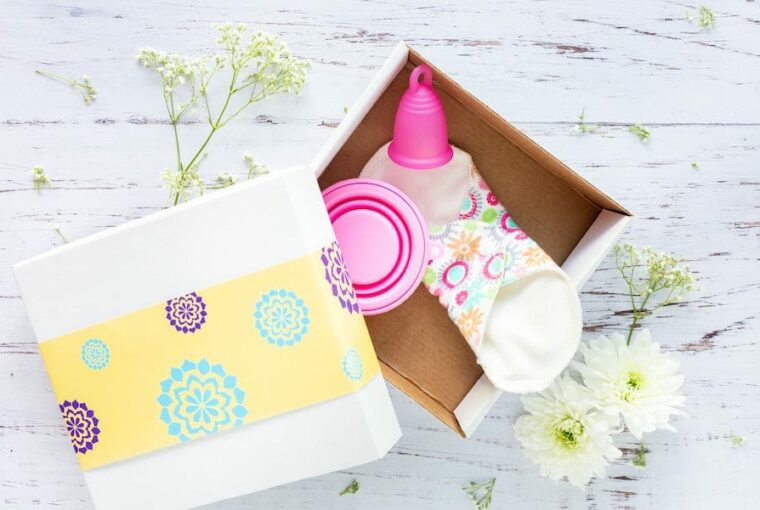Hey ladies! Let’s dive into the world of menopause – that phase of life where your hormones decide to throw a bit of a party. But don’t worry, we’ve got the ultimate guide on how to manage those menopause symptoms like a pro, with some natural remedies and practical tips that really work.
In a nutshell, managing menopause symptoms is all about finding the right balance between lifestyle tweaks, natural remedies, practical tips, and good communication with your healthcare provider. By incorporating relaxation techniques for menopause, you can minimize the impact of these symptoms on your daily life and confidently embrace this new chapter.
Understanding Menopause Symptoms
First things first, what exactly is menopause? Well, it’s the time in life when your periods decide to take an extended vacation – for at least a year. And while your uterus might be celebrating, your hormones are having a bit of a rollercoaster ride.
This hormonal shift can bring on a bunch of symptoms that can be, let’s say, less than fun. Here are some common ones:
1. Hot Flashes
These are like sudden heat waves that make you feel like you’re roasting from the inside out. Sweating and turning red are all part of the package. Hence, lower the room temperature to get control of night sweats.
2. Night Sweats
Hot flashes at night – yup, it’s a thing. They can disturb your sleep and leave you feeling pretty cranky. The underlying night sweats are a menopausal symptom. Thus, keeping the room temperature under control can aid in overcoming night sweats.
3. Mood Swings
Your emotions might start doing the cha-cha. One moment, you’re happy, and the very next, you’re ready to burst your anger out. Under these circumstances, you may start deep breathing and stretching activities.
4. Vaginal Dryness
This can make intimate moments less enjoyable, and you might find yourself in pain, burning, and irritation. Henceforth, you may reach for lubricants to get relief from vaginal dryness.
5. Sleep Troubles
Falling asleep and staying rested can become as elusive as a unicorn. Sleep troubles include insomnia, sleep apnea, restless leg syndrome, and results in mood disorders. For this, you may stick to a regular sleep schedule and keep the bedroom quiet, dark, and silent.
6. Weight Gain
Your metabolism might decide to slow down, and you could find yourself gaining weight, especially around your middle age. The menopausal hormonal changes are responsible for your weight gain. Start routine exercises to keep up with your body.
Bone Health
Watch out for those bones – the osteoporosis risk increases as estrogen levels drop. With this in mind, include wholesome, nutritious diets to stay healthy, making menopause and bone health strong.
The Best Ways To Manage Menopause Symptoms With Practical Tips And Solutions
Isn’t it better to stay alarmed and informed prior to the occurrence of menopause and emotional well-being? Here, this section serves the intent in connection with menopause lifestyle changes that help manage menopause symptoms and find the best way out.
Lifestyle Tweaks
- Eating Right: Load up on fruits, veggies, lean proteins, and whole grains. They can help you keep your weight in check and tone down those hot flashes.
- Get Moving: Exercise isn’t just for the youngsters. Getting moving can augment your mood, promote better sleep, and keep your bone health stronger. You may aim for 150 minutes of moderate exercise a week, like brisk walks, dancing, or swimming.
- Chill Out: Stress can make menopause symptoms worse. Now it is time for you to try relaxation techniques like meditation, yoga, or deep breathing to keep you cool.
- Catch Those Snore Zzz’s: Make your sleep environment cozy, and stick to a regular sleep schedule to improve your sleep quality.
Natural Menopause Treatments That Really Work
- Herbal Help: Some ladies find relief with herbal intakes like black cohosh or evening primrose oil. Just have a conversation with your doctor to make sure herbal supplements won’t interfere with any other medicine.
- Acupuncture: Those tiny needles might help improve sleep and reduce hot flashes in some women.
- Relaxation Techniques for Menopause: This is the secret sauce! Incorporate relaxation techniques such as muscle relaxation, deep breathing, and mindfulness meditation into your daily routine. They can help you manage stress, reduce hot flashes, and improve your mood and sleep.
Practical Tips and Solutions for Managing Menopause
- Stay Hydrated: Drink plenty of H2O, as this will keep hot flashes and dry skin at bay. Staying hydrated is essential for healthy you.
- Watch What You Consume: Alcohol and caffeine can be hot flash triggers. Cutting back might help ease your menopausal symptoms.
- Easy Layers: Dress in layers so you can peel off when a hot flash strikes or you may have light, comfortable clothes to avoid night sweats.
- Vaginal Moisturizers: Don’t hesitate to use over-the-counter vaginal moisturizers if you’re experiencing dryness.
- Lean on Your Support System: Talk to friends and family about your menopause journey, and consider joining support groups. Emotional support can make a world of difference.
Chat with Your Doc
If your symptoms are severe, there’s a possibility that your healthcare provider may recommend hormone replacement therapy (HRT). It has pros and cons, so thoroughly discuss it with your doctor.
Regular Check-ups
Keep those appointments with your healthcare provider to stay on top of your overall health. Bone density checks and screenings for conditions like osteoporosis are essential.
Embrace the Change
Menopause is a natural part of life. Embrace it with a positive mindset and focus on the freedom it brings from monthly periods. Explore new interests and hobbies – this is your time to shine!
5 Relaxation Techniques to Manage Menopause
Relaxation techniques can be the best way to cope with the symptoms of menopause, like hot flashes, night sweats, and anxiety. Here are some of the most routine relaxation techniques:
1. Deep Breathing Technique
This is a simple but effective way to calm the body and mind. To do deep breathing, sit or lie in a comfortable position and breathe in slowly and deeply through your nose. Now, hold a few seconds of your breath and exhale slowly out of your mouth. Repeat this for 5-10 minutes.
2. Meditation Technique
Meditation is an effective mind-body practice that involves focusing your attention on the present moment. There are many a number of meditation techniques, but a few standard techniques include focusing on your breath, repeating the process, and starting to visualize a calming sense.
3. Yoga
Yoga is another best way to have a mind-body exercise that combines physical postures, breathing exercises, and meditation. Further, yoga even helps to maintain flexibility, balance, and strength, as well as brings down the level of stress and anxiety.
4. Massage
Massage is a practical way to loosen up the muscles and relieve pain. It can also be a way to connect with your body and promote self-care.
5. Aromatherapy
Aromatherapy is a healing technique where essential oils are used to promote relaxation and well-being. There are a few essential oils that are commonly used for menopause, including lavender, chamomile, and ylang-ylang.
If you are experiencing menopause symptoms, you may get a doctor’s help before undergoing relaxation techniques. You can also find more information about relaxation techniques online or in books.
Conclusion
So, if you’re in the midst of menopause or approaching it, remember that you’re not alone. There are practical steps you can take to sail through this phase like a pro.
In the above article, we have explored the best ways to manage menopause and understand the symptoms along with relaxation techniques. We’ve also asked you to stay connected, discuss with your healthcare provider, and find what works best for you.
Cheers to the wonderful world beyond menopause!
I hope this helps!




